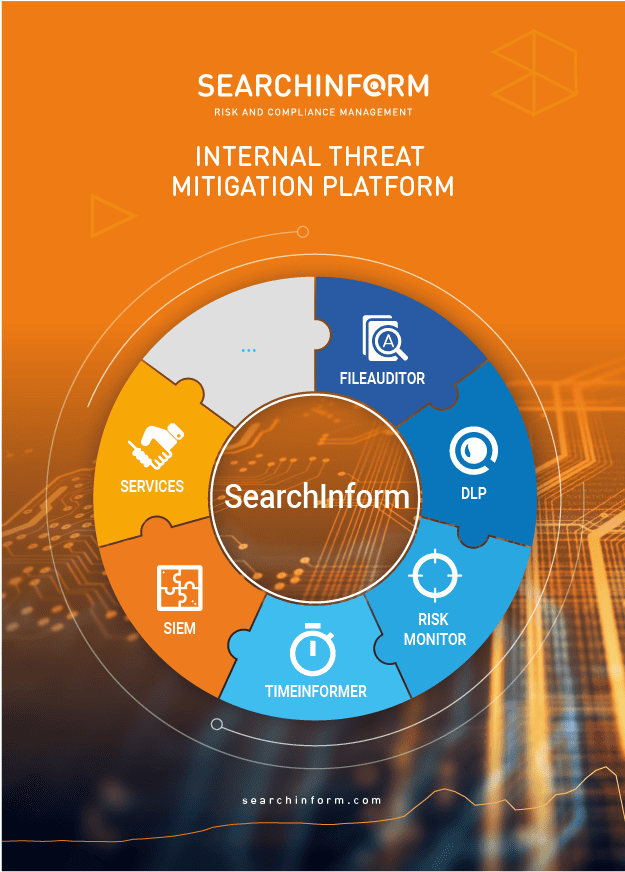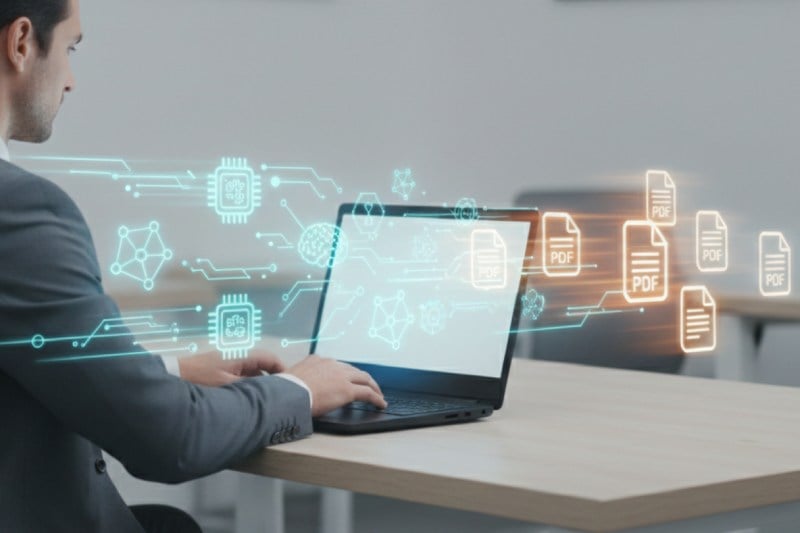Understanding Healthcare Privacy and Its Importance
- Understanding Healthcare Privacy
- The Significance of Medical Privacy
- Key Regulations Governing Healthcare Privacy
- HIPAA: The Cornerstone of Medical Privacy in the U.S.
- GDPR: Extending Medical Privacy to the EU
- Other Global Regulations
- The Impact of Technology on Healthcare Privacy
- Ensuring Robust Healthcare Privacy Practices
- Challenges in Healthcare Privacy
- Evolving Cybersecurity Threats
- Ransomware Attacks
- Phishing Scams
- Balancing Data Accessibility and Security
- Interoperability Concerns
- Mobile Health Technologies
- Compliance with Regulatory Standards
- HIPAA Compliance
- GDPR Implications
- Emerging Privacy Concerns in Telemedicine
- Video Conferencing Security
- Data Transmission Risks
- Strategies to Overcome Healthcare Privacy Challenges
- Implement Advanced Security Measures
- Foster a Culture of Privacy
- Collaborate for Standardization
- Technological Solutions for Healthcare Privacy
- Data Loss Prevention (DLP) in Healthcare
- Comprehensive Data Monitoring
- Policy Enforcement
- Incident Response
- Encryption and Access Control
- End-to-End Encryption
- Role-Based Access Control (RBAC)
- Multi-Factor Authentication (MFA)
- Secure Communication Channels
- Encrypted Messaging Platforms
- Secure Video Conferencing
- Secure Email Solutions
- Technological Solutions for Healthcare Privacy: Real-World Examples
- Data Loss Prevention (DLP) in Healthcare
- Mayo Clinic: Comprehensive Data Monitoring
- Cleveland Clinic: Policy Enforcement
- Encryption and Access Control
- Kaiser Permanente: End-to-End Encryption
- Johns Hopkins Medicine: Role-Based Access Control (RBAC)
- Intermountain Healthcare: Multi-Factor Authentication (MFA)
- Secure Communication Channels
- University of Pittsburgh Medical Center (UPMC): Encrypted Messaging Platforms
- Teladoc Health: Secure Video Conferencing
- Massachusetts General Hospital: Secure Email Solutions
- Future of Healthcare Privacy
- Emerging Trends and Technologies
- Artificial Intelligence and Machine Learning
- Blockchain Technology
- Internet of Medical Things (IoMT)
- Preparing for Future Challenges
- Strengthening Cybersecurity Measures
- Enhancing Regulatory Compliance
- Educating Healthcare Professionals
- SearchInform's Role in Healthcare Privacy
- Advanced Data Loss Prevention (DLP) Solutions
- Real-Time Data Monitoring
- Policy Enforcement and Compliance
- Comprehensive Encryption and Access Control
- Advanced Encryption Techniques
- Role-Based Access Control (RBAC)
- Enhancing Secure Communication Channels
- Encrypted Messaging and Email
- Secure Telemedicine Solutions
- Supporting Healthcare Privacy through Continuous Education
- Regular Training Programs
- Expert Support and Consultation
In the rapidly evolving landscape of healthcare, privacy stands as a cornerstone of patient trust and care quality. Healthcare privacy, often referred to as medical privacy, is crucial in ensuring that personal health information is protected from unauthorized access and misuse.
Understanding Healthcare Privacy
Healthcare privacy encompasses the policies, procedures, and technologies that safeguard patients' medical information. This includes ensuring that personal health data is only accessible to authorized individuals and used appropriately within the confines of medical care. The importance of medical privacy cannot be overstated, as it directly impacts the trust between patients and healthcare providers.
The Significance of Medical Privacy
Medical privacy is vital for several reasons:
- Trust Building: Patients are more likely to seek care and disclose sensitive information when they trust that their privacy will be maintained.
- Legal Compliance: Adhering to healthcare privacy laws helps institutions avoid legal repercussions.
- Prevention of Discrimination: Protecting health information prevents misuse that could lead to discrimination in employment, insurance, and other areas.
- Enhanced Care Quality: Secure data exchange promotes accurate diagnosis and effective treatment while safeguarding sensitive information.
Key Regulations Governing Healthcare Privacy
To maintain robust healthcare privacy, several key regulations have been established:
HIPAA: The Cornerstone of Medical Privacy in the U.S.
The Health Insurance Portability and Accountability Act (HIPAA) is a pivotal regulation in the United States that sets national standards for the protection of health information. HIPAA ensures that patient data is handled with the highest levels of confidentiality and security. Key components include:
- Privacy Rule: Establishes standards for the protection of health information.
- Security Rule: Sets standards for safeguarding electronic health information.
- Breach Notification Rule: Requires covered entities to notify patients in case of data breaches.
GDPR: Extending Medical Privacy to the EU
The General Data Protection Regulation (GDPR) has significant implications for healthcare privacy within the European Union. GDPR mandates stringent data protection measures, ensuring that health data is processed lawfully, transparently, and securely. Key provisions include:
- Data Minimization: Ensuring only necessary data is collected and processed.
- Consent: Requiring explicit consent from individuals for data processing.
- Right to Access: Allowing individuals to access their personal data and understand how it is used.
Other Global Regulations
Various countries have their own regulations to ensure healthcare privacy:
- Canada: The Personal Information Protection and Electronic Documents Act (PIPEDA) governs the collection, use, and disclosure of personal information in the private sector.
- Australia: The Privacy Act 1988 and the Australian Privacy Principles (APPs) provide a framework for protecting personal health information.
- Japan: The Act on the Protection of Personal Information (APPI) regulates the handling of personal data, including health information.
The Impact of Technology on Healthcare Privacy
With the advent of digital health technologies, maintaining medical privacy has become more challenging and critical. Electronic Health Records (EHRs), telemedicine, and mobile health apps necessitate stringent privacy measures to protect patient information from cyber threats.
- EHRs: While they enhance care coordination and accessibility, EHRs also pose risks if not adequately secured.
- Telemedicine: The rise of remote consultations requires secure communication channels to prevent data breaches.
- Mobile Health Apps: These apps collect vast amounts of health data, necessitating robust privacy policies and practices.
Ensuring Robust Healthcare Privacy Practices
Healthcare organizations must adopt comprehensive strategies to ensure medical privacy:
- Regular Training: Educate staff on privacy policies and data protection techniques.
- Advanced Encryption: Utilize encryption technologies to protect data at rest and in transit.
- Access Controls: Implement strict access controls to limit data access to authorized personnel only.
- Audit Trails: Maintain detailed logs of data access and usage to detect and respond to breaches promptly.
Healthcare privacy is a multifaceted and dynamic aspect of the modern healthcare system. By understanding its importance, adhering to key regulations, and adopting best practices, healthcare providers can ensure that patient trust is maintained, legal requirements are met, and high-quality care is delivered. As technology continues to evolve, so too must the strategies to protect medical privacy, ensuring that patient data remains secure in an increasingly digital world.
Challenges in Healthcare Privacy
Healthcare privacy is a critical concern in today's digital age, with numerous challenges threatening the integrity and confidentiality of patient information. As the healthcare industry continues to digitize, maintaining robust medical privacy has become increasingly complex.
Evolving Cybersecurity Threats
In the interconnected world of healthcare, cybersecurity threats are a growing menace. Cybercriminals are constantly developing sophisticated methods to breach medical privacy, targeting healthcare organizations due to the high value of personal health information.
Ransomware Attacks
Ransomware attacks have become a significant threat to healthcare privacy. These attacks involve encrypting patient data and demanding a ransom for its release. The consequences of such breaches can be devastating, potentially disrupting patient care and causing financial losses. According to a report by Sophos, the average cost of healthcare ransomware attacks was $1.27 million in 2021, emphasizing the need for robust cybersecurity measures【Sophos】.
Phishing Scams
Phishing scams are another prevalent threat, where attackers deceive healthcare employees into revealing sensitive information through fraudulent emails. These scams can lead to unauthorized access to patient records, compromising medical privacy. Training staff to recognize and respond to phishing attempts is crucial in mitigating this risk.
Balancing Data Accessibility and Security
Healthcare providers face the challenge of balancing data accessibility with security. While easy access to patient information is essential for effective care, it must not come at the expense of medical privacy.
Interoperability Concerns
Interoperability, the ability of different healthcare systems to work together, is vital for comprehensive patient care. However, ensuring interoperability while maintaining healthcare privacy is challenging. Data must be securely shared between systems without exposing it to unauthorized access. The lack of standardized protocols often complicates this balance.
Mobile Health Technologies
The proliferation of mobile health technologies, including apps and wearable devices, has revolutionized patient care. However, these technologies also pose significant risks to healthcare privacy. Many apps collect and store vast amounts of health data, which can be vulnerable to breaches if not adequately protected. Ensuring that these technologies comply with medical privacy regulations is essential to safeguard patient information.
Compliance with Regulatory Standards
Adhering to various regulatory standards is another complex challenge in maintaining healthcare privacy. Regulations such as HIPAA, GDPR, and others mandate stringent measures to protect patient information, but compliance can be demanding.
HIPAA Compliance
HIPAA sets the standard for protecting sensitive patient data in the United States. Compliance requires healthcare providers to implement a range of security measures, including risk assessments, employee training, and robust data encryption. However, keeping up with these requirements can be resource-intensive, particularly for smaller organizations.
GDPR Implications
In the European Union, GDPR imposes strict data protection regulations, including obtaining explicit patient consent for data processing and ensuring the right to data access and erasure. While these regulations enhance medical privacy, they also present significant compliance challenges, especially for multinational healthcare providers.
Emerging Privacy Concerns in Telemedicine
The rise of telemedicine, accelerated by the COVID-19 pandemic, has introduced new challenges for healthcare privacy. Remote consultations necessitate secure communication channels to protect patient information from unauthorized access.
Video Conferencing Security
Video conferencing platforms used for telemedicine must ensure end-to-end encryption to prevent data breaches. However, not all platforms meet the necessary security standards, potentially compromising medical privacy. Healthcare providers must carefully select and configure these platforms to ensure compliance with privacy regulations.
Data Transmission Risks
During telemedicine sessions, sensitive health data is transmitted over the internet, raising concerns about data interception. Implementing secure transmission protocols and educating patients about the importance of using secure networks are critical steps in mitigating these risks.
Strategies to Overcome Healthcare Privacy Challenges
Addressing the multifaceted challenges of healthcare privacy requires a comprehensive approach. Here are some strategies to enhance medical privacy:
Implement Advanced Security Measures
Healthcare organizations should invest in advanced security technologies, such as multi-factor authentication, intrusion detection systems, and encrypted data storage, to protect patient information from cyber threats.
Foster a Culture of Privacy
Creating a culture of privacy within healthcare organizations is essential. This involves regular training programs to educate employees about the importance of medical privacy and best practices for safeguarding patient data.
Collaborate for Standardization
Industry collaboration is vital to develop standardized protocols for data interoperability and security. Collaborative efforts can help establish common frameworks that balance data accessibility with stringent privacy protections.
Healthcare privacy is an ever-evolving challenge in the digital age. As cyber threats become more sophisticated and healthcare technologies continue to advance, maintaining robust medical privacy requires continuous vigilance and adaptation. By addressing cybersecurity threats, balancing data accessibility with security, complying with regulatory standards, and adopting comprehensive privacy strategies, healthcare providers can protect patient information and uphold the trust essential for effective care.
Technological Solutions for Healthcare Privacy
In the age of digital transformation, technological solutions play a crucial role in safeguarding healthcare privacy. With the increasing reliance on electronic health records (EHRs), telemedicine, and mobile health applications, the need for robust security measures to protect medical privacy is more pressing than ever.
Data Loss Prevention (DLP) in Healthcare
Data loss prevention (DLP) technologies are essential in healthcare settings to prevent unauthorized access and data breaches. DLP solutions monitor and control the movement of sensitive data, ensuring that healthcare privacy is maintained.
Comprehensive Data Monitoring
DLP systems provide comprehensive monitoring of data across the network, identifying and tracking sensitive information. By continuously scanning emails, file transfers, and other communication channels, DLP solutions can detect potential breaches before they occur. This proactive approach is vital in maintaining medical privacy, as it allows healthcare organizations to address vulnerabilities promptly.
Policy Enforcement
Enforcing strict data handling policies is crucial for protecting healthcare privacy. DLP technologies enable healthcare providers to establish and enforce policies that govern the use and sharing of sensitive information. These policies can include rules for encrypting data, restricting access to authorized personnel, and preventing the transfer of sensitive data to unauthorized devices.
Incident Response
In the event of a data breach, a robust incident response plan is essential to mitigate damage and protect medical privacy. DLP solutions can aid in incident response by providing detailed logs and alerts, helping healthcare organizations quickly identify the source of the breach and take appropriate action to contain it.
Encryption and Access Control
Encryption and access control are foundational elements of healthcare privacy. By ensuring that only authorized individuals can access sensitive information, these technologies protect medical privacy from unauthorized access and cyber threats.
End-to-End Encryption
End-to-end encryption (E2EE) is a powerful method of protecting data during transmission. In healthcare, E2EE ensures that patient information shared between providers, or between providers and patients, is encrypted from the moment it is sent until it is received. This level of encryption is critical for maintaining healthcare privacy, especially in telemedicine and remote patient monitoring.
Role-Based Access Control (RBAC)
Role-based access control (RBAC) restricts access to sensitive data based on an individual’s role within the organization. By limiting access to only those who need it to perform their duties, RBAC enhances medical privacy and reduces the risk of unauthorized data exposure. For example, administrative staff may have access to billing information, while only medical professionals can view detailed patient health records.
Multi-Factor Authentication (MFA)
Multi-factor authentication (MFA) adds an extra layer of security by requiring users to provide two or more verification factors to access sensitive information. MFA can include something the user knows (a password), something the user has (a security token), and something the user is (biometric verification). Implementing MFA in healthcare settings is crucial for ensuring that only authorized individuals can access patient data, thereby protecting healthcare privacy.

Secure Communication Channels
Secure communication channels are essential for maintaining medical privacy in healthcare. Whether for telemedicine consultations or internal communications among healthcare providers, secure channels ensure that sensitive information is not intercepted or compromised.
Encrypted Messaging Platforms
Encrypted messaging platforms provide a secure way for healthcare professionals to communicate sensitive information. These platforms use end-to-end encryption to ensure that messages remain private and cannot be accessed by unauthorized parties. Secure messaging is particularly important for discussing patient care, sharing test results, and coordinating treatment plans.
Secure Video Conferencing
The rise of telemedicine has highlighted the need for secure video conferencing solutions. Secure video conferencing platforms use encryption and other security measures to protect the confidentiality of virtual consultations. This ensures that patient information is not exposed during transmission, maintaining healthcare privacy.
Secure Email Solutions
Email remains a primary communication tool in healthcare, but it is also a common target for cyberattacks. Secure email solutions use encryption and other security measures to protect sensitive information sent via email. These solutions can also include features such as secure email gateways, which scan incoming and outgoing emails for threats and prevent unauthorized data transfers.
Protecting healthcare privacy in the digital age requires a multifaceted approach that includes data loss prevention, encryption, access control, and secure communication channels. By leveraging these technological solutions, healthcare organizations can safeguard medical privacy, ensuring that sensitive patient information remains confidential and secure. As technology continues to evolve, so too must the strategies for protecting healthcare privacy, ensuring that patient trust and care quality are maintained at the highest levels.
Technological Solutions for Healthcare Privacy: Real-World Examples
The implementation of technological solutions to protect healthcare privacy is not just theoretical; numerous real-world examples illustrate their effectiveness. By examining these examples, we can better understand how data loss prevention, encryption, access control, and secure communication channels contribute to maintaining medical privacy.
Data Loss Prevention (DLP) in Healthcare
Mayo Clinic: Comprehensive Data Monitoring
The Mayo Clinic, one of the largest and most respected healthcare providers in the United States, has implemented comprehensive DLP solutions to protect patient data. By continuously monitoring data flows and using advanced analytics, the Mayo Clinic can detect and respond to potential data breaches in real-time. This proactive approach has been instrumental in safeguarding medical privacy across its extensive network of facilities and services【Mayo Clinic】.
Cleveland Clinic: Policy Enforcement
Cleveland Clinic, another leading healthcare institution, employs DLP technologies to enforce strict data handling policies. These policies ensure that sensitive patient information is encrypted and only accessible to authorized personnel. The DLP system flags any unauthorized attempts to access or transmit sensitive data, thereby maintaining healthcare privacy and preventing data breaches【Cleveland Clinic】.
Encryption and Access Control
Kaiser Permanente: End-to-End Encryption
Kaiser Permanente, a prominent healthcare provider and health plan operator, has adopted end-to-end encryption for its telemedicine services. This encryption ensures that patient consultations conducted over video calls remain private and secure. By encrypting data from the source to the recipient, Kaiser Permanente protects medical privacy and builds trust with its patients【Kaiser Permanente】.
Johns Hopkins Medicine: Role-Based Access Control (RBAC)
Johns Hopkins Medicine utilizes role-based access control to manage access to its electronic health records (EHRs). By assigning specific roles to staff members and granting access based on their responsibilities, Johns Hopkins ensures that only authorized individuals can view or modify patient records. This method significantly enhances healthcare privacy by minimizing the risk of unauthorized data access【Johns Hopkins Medicine】.
Intermountain Healthcare: Multi-Factor Authentication (MFA)
Intermountain Healthcare, a Utah-based nonprofit healthcare system, has implemented multi-factor authentication for accessing its EHR systems. By requiring multiple forms of verification, such as passwords and biometric scans, Intermountain Healthcare adds an extra layer of security to protect patient information. This practice is crucial for maintaining medical privacy in a large healthcare network【Intermountain Healthcare】.
Secure Communication Channels
University of Pittsburgh Medical Center (UPMC): Encrypted Messaging Platforms
UPMC has adopted secure messaging platforms to facilitate communication among healthcare providers. These platforms use end-to-end encryption to ensure that messages containing sensitive patient information remain confidential. By implementing encrypted messaging, UPMC protects healthcare privacy and ensures secure coordination of patient care【UPMC】.
Teladoc Health: Secure Video Conferencing
Teladoc Health, a leading telemedicine provider, uses secure video conferencing technology to conduct virtual consultations. The platform employs advanced encryption and security protocols to protect patient information during telehealth sessions. This commitment to secure communication channels ensures that medical privacy is maintained, even in a virtual environment【Teladoc Health】.
Massachusetts General Hospital: Secure Email Solutions
Massachusetts General Hospital (MGH) has implemented secure email solutions to protect sensitive information shared via email. These solutions include encryption, secure email gateways, and policies that restrict the transmission of sensitive data to authorized recipients only. By securing email communications, MGH upholds healthcare privacy and prevents data breaches【Massachusetts General Hospital】.
Real-world examples from leading healthcare organizations demonstrate the effectiveness of technological solutions in protecting healthcare privacy. Data loss prevention systems, encryption techniques, access control measures, and secure communication channels are all essential components of a robust medical privacy strategy. By adopting these technologies, healthcare providers can safeguard sensitive patient information, ensuring that healthcare privacy remains intact in an increasingly digital world. As these examples show, the commitment to medical privacy is not just about compliance but about building trust and ensuring the highest quality of care for patients.
Future of Healthcare Privacy
As the healthcare industry continues to evolve, so too must the strategies and technologies employed to protect healthcare privacy. The future of medical privacy is shaped by emerging trends and innovative technologies designed to address the complex challenges of a digital world. Ensuring robust protection of patient information will remain a top priority as new threats and opportunities emerge.
Emerging Trends and Technologies
The landscape of healthcare privacy is rapidly changing, driven by advancements in technology and evolving regulatory requirements. Understanding these emerging trends and technologies is crucial for staying ahead of potential risks and maintaining the highest standards of medical privacy.
Artificial Intelligence and Machine Learning
Artificial Intelligence (AI) and Machine Learning (ML) are transforming the way healthcare organizations approach privacy. These technologies can analyze vast amounts of data to detect patterns, predict potential security threats, and automate responses to breaches. By leveraging AI and ML, healthcare providers can enhance their ability to protect sensitive patient information and ensure compliance with privacy regulations.
- Predictive Analytics: AI-driven predictive analytics can identify potential vulnerabilities before they are exploited, allowing healthcare organizations to proactively address risks.
- Automated Threat Detection: ML algorithms can continuously monitor network activity for unusual behavior, providing real-time alerts and automated responses to potential breaches.
Blockchain Technology
Blockchain technology offers a decentralized and secure way to manage healthcare data. Its immutable and transparent nature makes it an ideal solution for enhancing medical privacy.
- Decentralized Data Storage: Blockchain's decentralized structure reduces the risk of centralized data breaches, ensuring that patient information is securely distributed across multiple nodes.
- Immutable Records: Once data is recorded on the blockchain, it cannot be altered or deleted, ensuring the integrity and accuracy of patient records.
Internet of Medical Things (IoMT)
The Internet of Medical Things (IoMT) refers to the interconnected network of medical devices and applications that collect and exchange health data. While IoMT offers significant benefits for patient care, it also presents new challenges for healthcare privacy.
- Secure Device Communication: Ensuring secure communication between IoMT devices is crucial for protecting sensitive health data from interception and unauthorized access.
- Device Authentication: Implementing strong authentication mechanisms for medical devices helps prevent unauthorized access and tampering.
Preparing for Future Challenges
As the healthcare industry continues to embrace digital transformation, preparing for future challenges in medical privacy requires a proactive and strategic approach. Organizations must stay informed about emerging threats and continuously adapt their privacy practices to safeguard patient information.
Strengthening Cybersecurity Measures
With the increasing sophistication of cyberattacks, healthcare organizations must invest in advanced cybersecurity measures to protect medical privacy.
- Advanced Encryption: Utilizing the latest encryption technologies to protect data both in transit and at rest is essential for maintaining healthcare privacy.
- Regular Security Audits: Conducting regular security audits helps identify vulnerabilities and ensure compliance with privacy regulations.
Enhancing Regulatory Compliance
Compliance with evolving privacy regulations is a critical component of healthcare privacy. Organizations must stay abreast of changes in the regulatory landscape and implement necessary measures to ensure compliance.
- Global Privacy Regulations: As regulations like the General Data Protection Regulation (GDPR) and the Health Insurance Portability and Accountability Act (HIPAA) evolve, healthcare providers must adapt their practices to meet these stringent requirements.
- Patient Consent Management: Implementing robust consent management processes ensures that patients' preferences for data sharing are respected and documented.
Educating Healthcare Professionals
Ensuring that healthcare professionals are well-informed about privacy best practices is vital for protecting medical privacy.
- Ongoing Training Programs: Regular training programs help healthcare staff stay updated on the latest privacy practices and cybersecurity threats.
- Privacy Awareness Campaigns: Promoting privacy awareness within the organization fosters a culture of vigilance and responsibility among employees.
The future of healthcare privacy is shaped by technological advancements, regulatory changes, and emerging threats. By embracing new technologies such as AI, blockchain, and IoMT, and by preparing for future challenges through enhanced cybersecurity measures, regulatory compliance, and continuous education, healthcare organizations can ensure the robust protection of medical privacy. As the digital landscape continues to evolve, maintaining healthcare privacy will remain a dynamic and ongoing process, critical for building trust and delivering high-quality patient care.
SearchInform's Role in Healthcare Privacy
In the quest to safeguard healthcare privacy, SearchInform stands out as a pivotal player. By offering comprehensive solutions designed to protect medical privacy, SearchInform helps healthcare organizations navigate the complex landscape of data security and regulatory compliance. This section explores how SearchInform's technologies and services contribute to maintaining robust healthcare privacy.
Advanced Data Loss Prevention (DLP) Solutions
SearchInform provides advanced Data Loss Prevention (DLP) solutions tailored to the unique needs of the healthcare sector. These solutions are critical in preventing unauthorized access and data breaches, thereby ensuring medical privacy.
Real-Time Data Monitoring
One of the core features of SearchInform's DLP solutions is real-time data monitoring. This technology continuously tracks the movement of sensitive information across the network, identifying and alerting administrators to any suspicious activities. By doing so, it helps healthcare organizations swiftly address potential breaches and mitigate risks.
- Continuous Monitoring: Ensures that all data flows are monitored 24/7, providing a constant safeguard for sensitive patient information.
- Anomaly Detection: Identifies unusual patterns that may indicate a data breach, enabling proactive responses.
Policy Enforcement and Compliance
SearchInform's DLP solutions also assist in enforcing data handling policies and ensuring compliance with regulatory requirements. Healthcare organizations must adhere to stringent privacy laws, such as HIPAA and GDPR, to protect patient data.
- Automated Policy Enforcement: Implements and enforces data handling policies automatically, reducing the risk of human error.
- Compliance Reporting: Generates detailed reports that help organizations demonstrate compliance with regulatory standards, thus maintaining healthcare privacy.
Comprehensive Encryption and Access Control
Encryption and access control are vital components of medical privacy, and SearchInform excels in providing these protections. By implementing robust encryption and access control mechanisms, SearchInform helps healthcare organizations safeguard sensitive data against unauthorized access.
Advanced Encryption Techniques
SearchInform employs state-of-the-art encryption techniques to protect data both at rest and in transit. This ensures that sensitive information remains confidential and secure, even if intercepted during transmission.
- Data Encryption: Encrypts patient records and other sensitive information to prevent unauthorized access.
- End-to-End Encryption: Secures data from the point of origin to the point of destination, ensuring comprehensive protection.
Role-Based Access Control (RBAC)
SearchInform's access control solutions include role-based access control (RBAC), which restricts access to sensitive information based on an individual's role within the organization.
- Granular Access Control: Allows healthcare organizations to define and manage access levels based on job roles, ensuring that only authorized personnel can access sensitive data.
- Audit Trails: Maintains detailed logs of access and actions taken on patient records, providing transparency and accountability.
Enhancing Secure Communication Channels
Effective communication is essential in healthcare, but it must not compromise medical privacy. SearchInform's solutions include secure communication channels that protect sensitive information exchanged between healthcare providers and patients.
Encrypted Messaging and Email
SearchInform offers secure messaging and email solutions that use encryption to protect communications. This ensures that sensitive information shared via these channels remains confidential and secure.
- Secure Messaging: Provides end-to-end encrypted messaging platforms for healthcare professionals.
- Encrypted Email: Ensures that emails containing sensitive patient information are encrypted and protected from interception.
Secure Telemedicine Solutions
Searchinform solutions are used to ensure secure data exchange across all channels, including those used in the provision of telemedicine services.
- Secure Video Conferencing: Integration with video conferencing platforms enables secure exchange of confidential data, taking into account the rights of meeting participants.
- Patient Data Protection: Ensures that data shared during virtual consultations is securely stored and transmitted.
Supporting Healthcare Privacy through Continuous Education
SearchInform recognizes that technology alone cannot ensure medical privacy; continuous education and awareness are equally important. The company provides training and resources to help healthcare professionals understand and implement best practices for data security.
Regular Training Programs
SearchInform offers regular training programs to keep healthcare staff updated on the latest privacy practices and cybersecurity threats.
- Ongoing Education: Provides continuous learning opportunities for healthcare professionals to stay informed about data protection strategies.
- Awareness Campaigns: Promotes privacy awareness within healthcare organizations, fostering a culture of vigilance and responsibility.
Expert Support and Consultation
In addition to training, SearchInform provides expert support and consultation to help healthcare organizations develop and implement effective privacy strategies.
- Consultation Services: Offers tailored advice and solutions to address specific privacy challenges.
- Expert Support: Provides access to cybersecurity experts who can assist with implementing and managing data protection measures.
SearchInform plays a critical role in enhancing healthcare privacy through its advanced technological solutions and continuous educational efforts. By offering comprehensive DLP solutions, robust encryption and access control mechanisms, and secure communication channels, SearchInform helps healthcare organizations protect sensitive patient information. Furthermore, its commitment to education and support ensures that healthcare professionals are well-equipped to uphold medical privacy in an ever-evolving digital landscape. As the challenges to healthcare privacy continue to grow, SearchInform's contributions will remain invaluable in safeguarding patient data and maintaining trust in healthcare systems.
Ensure the security of your healthcare data by leveraging advanced privacy solutions from SearchInform. Take proactive steps today to protect patient information and maintain trust in your healthcare services!
Full-featured software with no restrictions
on users or functionality
Company news
SearchInform uses four types of cookies as described below. You can decide which categories of cookies you wish to accept to improve your experience on our website. To learn more about the cookies we use on our site, please read our Cookie Policy.
Necessary Cookies
Always active. These cookies are essential to our website working effectively.
Cookies does not collect personal information. You can disable the cookie files
record
on the Internet Settings tab in your browser.
Functional Cookies
These cookies allow SearchInform to provide enhanced functionality and personalization, such as remembering the language you choose to interact with the website.
Performance Cookies
These cookies enable SearchInform to understand what information is the most valuable to you, so we can improve our services and website.
Third-party Cookies
These cookies are created by other resources to allow our website to embed content from other websites, for example, images, ads, and text.
Please enable Functional Cookies
You have disabled the Functional Cookies.
To complete the form and get in touch with us, you need to enable Functional Cookies.
Otherwise the form cannot be sent to us.

Subscribe to our newsletter and receive a bright and useful tutorial Explaining Information Security in 4 steps!

Subscribe to our newsletter and receive case studies in comics!







